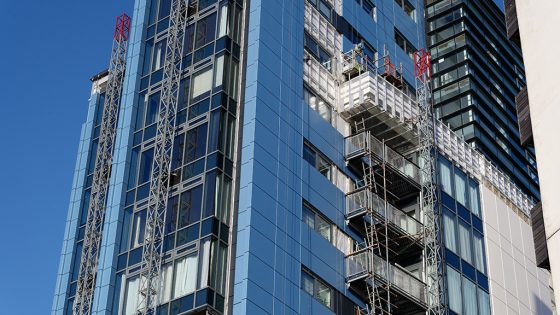The Building Safety Regulator (BSR) will take a “harder” stance on building control applications to tackle delays, one of its directors has said.
The regulator had engaged in too much conversation with applicants on their submissions in its first few months of operation, which then delayed other applications, BSR deputy director Tim Galloway told Construction News’ CN Forecasting conference yesterday (19 November).
Since April this year, the regulator must approve construction plans on higher-risk buildings (HRBs) before construction can start. An HRB is a building taller than 18 metres or seven storeys that contains at least two residential units.
However, it has since been revealed that the BSR has failed to determine large numbers of applications within the statutory timelines.
Galloway admitted that the team designing the new regulator, which began its work in October last year within the Health and Safety Executive, had made assumptions about demands for its service that “didn’t turn out to be the case”.
While the BSR had stepped up recruitment and sharpened its processes, it had more work to do, he added.
“Part of the shift that we’re making is to be harder,” he said. “If your application doesn’t demonstrate compliance with the building regulations we will reject it. And so you may find with those applications our speed in processing increasing.”
Galloway praised the BSR for rejecting so many applications to build HRBs, which he said is “taking risk out the system”.
He said: “I think Gateway two is already starting to create an impact because we are rejecting applications… and they’re doing that because it hasn’t demonstrated that it meets the functional requirements of the building regulations.”
“We stop these plans that don’t meet the functional requirement before they turn into a building that doesn’t meet the functional requirements.”
The panel, chaired by Arcadis director Simon Rawlinson, also featured Construction Products Association Peter Caplehorn, Building Engineering Services Association chief executive David Frise and Samantha Peat, chair of the Construction Leadership Council’s professional indemnity insurance working group.

